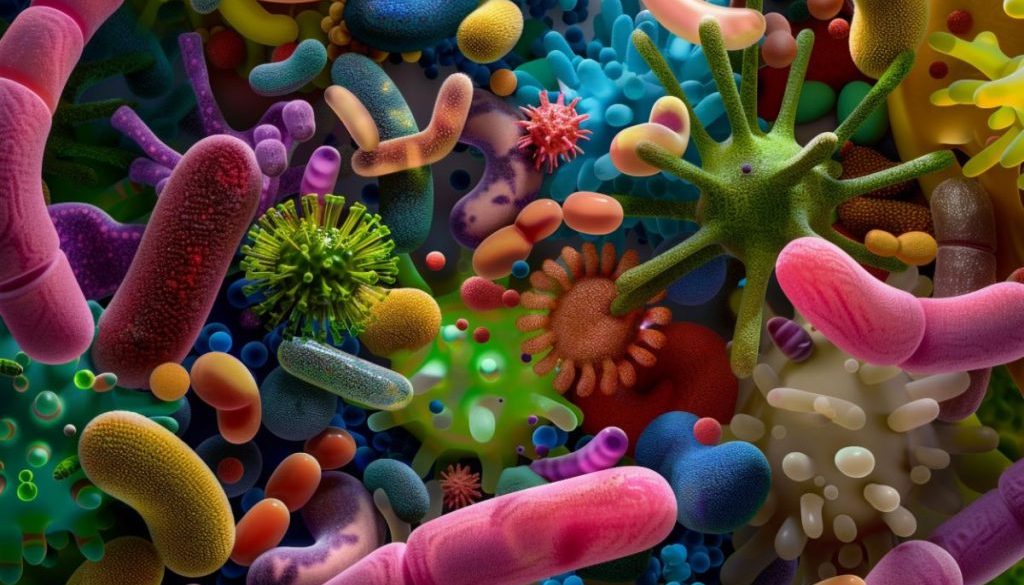How Diet Affects Gut Flora
The gut flora, or gut microbiota, refers to the complex community of microorganisms living in the digestive tracts of humans and animals. These microorganisms, including bacteria, viruses, fungi, and other microbes, play a crucial role in maintaining overall health, influencing digestion, metabolism, and even immune function. One of the most significant factors affecting the composition and diversity of gut flora is diet. This article explores how different dietary choices impact gut microbiota and the implications for health and well-being.
The Importance of Gut Flora
Gut flora is essential for various physiological processes, including:
- Digestion: Gut bacteria help break down complex carbohydrates and fibers that human enzymes cannot digest, producing short-chain fatty acids (SCFAs) that provide energy and support intestinal health.
- Immune Function: A diverse gut microbiota helps educate and regulate the immune system, protecting against pathogens and reducing inflammation.
- Metabolism: Gut microbes can influence how the body processes food, affects energy balance, and may even play a role in weight management and obesity.
How Diet Influences Gut Flora
- Fiber Intake
Dietary fiber, found in fruits, vegetables, whole grains, and legumes, is crucial for maintaining a healthy gut microbiota. High-fiber diets promote the growth of beneficial bacteria that ferment fiber into SCFAs, which nourish colon cells and reduce inflammation.
- Benefits of High Fiber: A fiber-rich diet increases microbial diversity and abundance of beneficial bacteria such as Bifidobacterium and Lactobacillus, leading to improved gut health and function.
- Low Fiber Risks: Diets low in fiber can lead to a decline in beneficial bacteria, increased levels of harmful bacteria, and a higher risk of gastrointestinal disorders.
- Fermented Foods
Fermented foods like yogurt, kefir, sauerkraut, kimchi, and kombucha are rich in probiotics—live microorganisms that can positively influence gut health.
- Probiotic Benefits: Regular consumption of fermented foods can enhance microbial diversity, promote the growth of beneficial bacteria, and support gut barrier function.
- Diversity and Resilience: A diet that includes a variety of fermented foods helps cultivate a diverse gut microbiota, making it more resilient to disturbances such as antibiotic use or illness.
- Animal-Based vs. Plant-Based Diets
The type of diet—animal-based (rich in meat and dairy) versus plant-based (rich in fruits, vegetables, and grains)—can significantly affect gut flora composition.
- Animal-Based Diets: High consumption of red and processed meats has been associated with reduced microbial diversity and an increase in pro-inflammatory bacteria, which may lead to negative health outcomes.
- Plant-Based Diets: Diets rich in plants tend to foster a more diverse gut microbiota and are associated with lower levels of inflammation and reduced risk of chronic diseases.
- Sugar and Processed Foods
High sugar intake and consumption of processed foods can adversely affect gut flora.
- Negative Impact of Sugar: Diets high in sugar and unhealthy fats can promote the growth of pathogenic bacteria and fungi, leading to dysbiosis (an imbalance in gut microbiota).
- Processed Foods: Highly processed foods often lack fiber and beneficial nutrients, contributing to a less diverse and less healthy gut microbiota.
- Hydration
Adequate hydration is essential for overall health, including gut health. Water supports digestion and nutrient absorption, and it also helps maintain the mucosal lining of the gut.
- Gut Flora Balance: Proper hydration can support a balanced gut microbiome and enhance the effectiveness of dietary fiber, promoting optimal digestion and microbial health.
Diet plays a pivotal role in shaping gut flora and overall health. By focusing on a balanced diet rich in fiber, fermented foods, and a variety of plant-based options while minimizing processed foods and sugars, individuals can promote a diverse and healthy gut microbiota. This, in turn, supports digestion, immunity, and overall well-being. Understanding the connection between diet and gut health is essential for making informed dietary choices that contribute to long-term health.
References
- David, L.A., et al. (2014). “Diet rapidly and reproducibly alters the gut microbiome of rats.” Nature, 513(7516), 288-292.
- Wu, H., et al. (2017). “Diet-induced obesity alters the gut microbiota of rats.” Scientific Reports, 7(1), 1-9.
- Cani, P.D. (2017). “Microbiota and the Pathogenesis of Metabolic Disease.” Diabetes, 66(8), 2016-2023.




